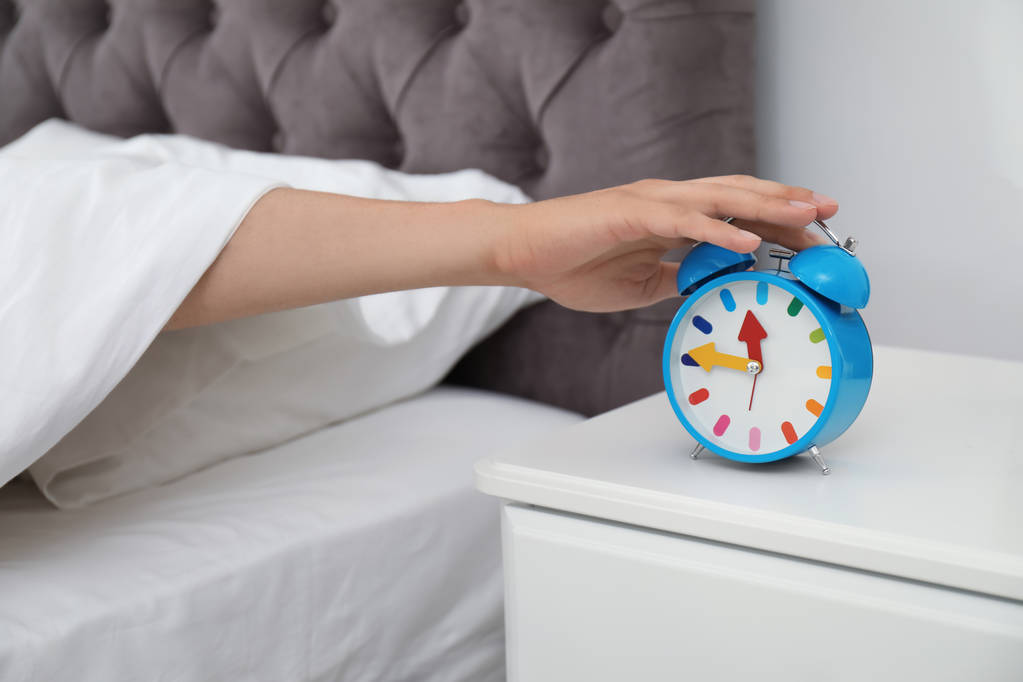Sleep Schedule: Sleep Aid Explained
09/13/2023

Welcome, dear reader, to the wonderful world of sleep! In this comprehensive glossary entry, we're going to delve deep into the realm of sleep schedules and sleep aids. So, grab a cup of chamomile tea, put on your comfiest pajamas, and let's embark on this journey together.
Just like a well-tuned orchestra, our bodies operate on a schedule. This schedule, known as the circadian rhythm, dictates when we feel sleepy and when we feel alert. But what happens when the conductor (our brain) loses the sheet music (our sleep schedule)? That's where sleep aids come into play. But don't worry, we're here to explain it all in a fun and easy-to-understand way.

The Importance of a Regular Sleep Schedule
Imagine trying to catch a train without knowing the timetable. You'd probably end up waiting at the station for hours, right? Well, our bodies are like that train station, and our sleep is the train. A regular sleep schedule ensures that our bodies know when to expect the sleep train, leading to better sleep quality and overall health.
Without a regular sleep schedule, our bodies can become confused, leading to sleep disorders such as insomnia or excessive daytime sleepiness. So, maintaining a consistent sleep schedule is not just about getting enough sleep, but also about ensuring that our bodies function optimally.
How to Establish a Regular Sleep Schedule
Establishing a regular sleep schedule might seem like a daunting task, especially if you're used to staying up late or waking up at irregular times. However, with a bit of discipline and patience, it's entirely possible to train your body to follow a consistent sleep schedule.
Start by determining how much sleep you need each night. Most adults need between seven and nine hours of sleep, but this can vary depending on individual needs. Once you know how much sleep you need, decide on a bedtime and wake-up time that allows for this amount of sleep, and stick to these times as closely as possible, even on weekends.
The Role of Light in Sleep Schedules
Our bodies are incredibly sensitive to light, which plays a crucial role in regulating our sleep schedules. Exposure to light, especially blue light from electronic devices, can suppress the production of melatonin, a hormone that signals to our bodies that it's time to sleep.
Therefore, it's important to limit exposure to light in the evening, especially from electronic devices. On the other hand, exposure to natural light in the morning can help to reset our internal clocks and promote wakefulness.
Understanding Sleep Aids
Now that we've covered sleep schedules, let's move on to sleep aids. Sleep aids are products or methods used to promote sleep. They range from over-the-counter medications and prescription drugs to natural remedies and lifestyle changes.
While sleep aids can be effective in promoting sleep, they are not a cure for sleep disorders and should not be used as a long-term solution. Instead, they should be used as a temporary measure while working on establishing a regular sleep schedule and addressing any underlying issues that may be disrupting sleep.
Over-the-Counter Sleep Aids
Over-the-counter sleep aids are medications that can be purchased without a prescription. They typically contain antihistamines, which are drugs that are commonly used to treat allergies but can also cause drowsiness.
While over-the-counter sleep aids can be effective in the short term, they can also cause side effects such as dry mouth, dizziness, and daytime drowsiness. Therefore, they should be used with caution and only under the advice of a healthcare professional.
Prescription Sleep Aids
Prescription sleep aids are medications that are prescribed by a doctor. They include drugs such as benzodiazepines, non-benzodiazepine hypnotics, and melatonin receptor agonists.
Prescription sleep aids can be very effective in promoting sleep, but they can also cause side effects and can be habit-forming. Therefore, they should only be used under the supervision of a healthcare professional, and only when other methods have failed to improve sleep.
Natural Sleep Aids
Natural sleep aids are methods or substances that are used to promote sleep without the use of medication. They include things like herbal teas, dietary supplements, and relaxation techniques.
While natural sleep aids can be a good option for those who prefer not to use medication, it's important to remember that they are not a cure-all. Just like with any other sleep aid, they should be used as part of a comprehensive approach to improving sleep that includes maintaining a regular sleep schedule and addressing any underlying issues that may be disrupting sleep.
Herbal Teas and Supplements
Herbal teas and supplements are a popular natural sleep aid. They typically contain herbs such as chamomile, valerian root, and lavender, which are known for their calming and sleep-promoting properties.
While herbal teas and supplements can be a good option for promoting sleep, it's important to remember that they are not regulated by the Food and Drug Administration (FDA). Therefore, their quality and effectiveness can vary, and they can sometimes interact with other medications. As always, it's best to consult with a healthcare professional before starting any new supplement regimen.
Relaxation Techniques
Relaxation techniques are methods used to reduce stress and promote relaxation, both of which can improve sleep. They include techniques such as deep breathing, progressive muscle relaxation, and mindfulness meditation.
Relaxation techniques can be a great way to wind down before bed and prepare your body for sleep. They can also be used during the day to manage stress, which can often disrupt sleep. The best part is that they can be done anywhere, anytime, and require no special equipment or training.

Conclusion
And there you have it, a comprehensive guide to sleep schedules and sleep aids. Remember, sleep is not a luxury, but a necessity. So, take care of your sleep schedule, explore sleep aids if necessary, and don't forget to dream big!
As we conclude this journey, we hope you've gained a deeper understanding of the importance of a regular sleep schedule and the role of sleep aids. Here's to sweet dreams and restful nights!

 Back to Blog
Back to Blog